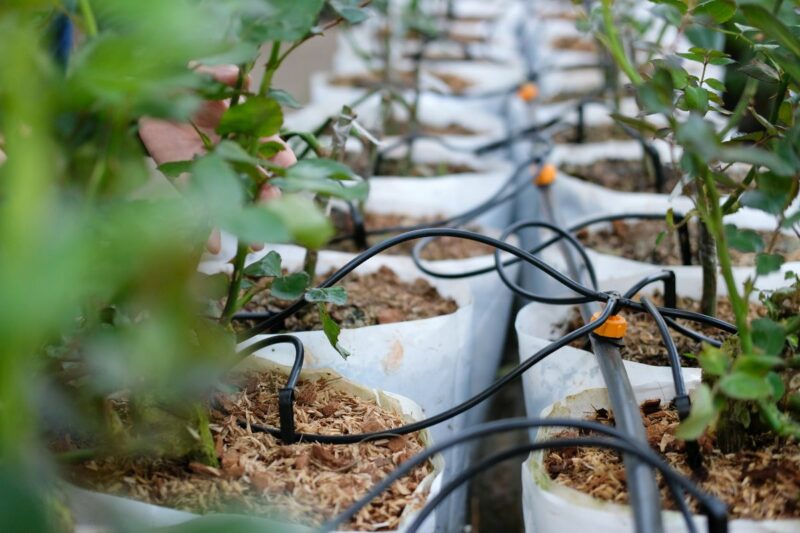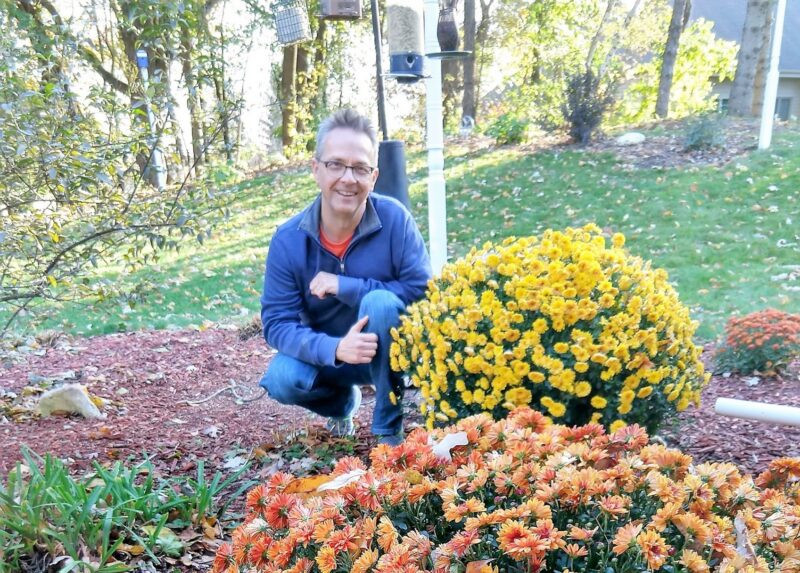Plastics have revolutionized many industries over the years, including the floriculture industry. In fact, without plastics the floriculture industry would not be what it is today. Let’s see how plastics have changed this industry and how it is striving for sustainability.
Enabling Commercial Floriculture
The greatest influence of plastics on the floriculture industry can be witnessed in the area of commercial production, specifically the following areas:

Plastic planters and watering systems used in commercial plant production.
Greenhouses – The availability of plastic film greenhouses have had the greatest impact of any plastic on the floriculture industry. Plastics provided an inexpensive option to those that could not afford the hefty price tag associated with traditional glass-covered structures.
Production – The introduction of plastics has changed how flowers are grown through:
- Water systems – Plastics are cheaper, simpler, more efficient and flexible than systems using metal pipes and fittings.
- Shade material and blackout film – Plastics are resistant to dirt, mechanical abrasion, and algae. They are also lightweight and low in cost.
- Flats, packs, and trays – Plastics offer improved water retention over traditional, semi-porous wood pulp. Plastics revolutionized the bedding plant industry by enabling vacuum seeding and plug culture.
Plastic pots – The second most significant impact of plastics in floriculture is their use in the production of pots. Until the late 1960s, clay was the most widely used raw material for pots. Those that could not afford clay pots used containers impervious to air and water, such as tin cans. Plastic pots are lightweight, less fragile, free from algae, and have greater moisture retention than clay. Plastic pots also facilitate mechanized pot filling and moving operations.

Gardener at home with his fall mums.
The Challenge of Sustainability
Plastics have allowed floriculture to flourish. They have improved the accessibility of flowers for consumers by making them ultimately less expensive to grow. This has enabled consumers to cost effectively beautify both their residential and commercial properties. Unfortunately, there has been an unintended consequence of this growth in the generation of plastic waste. Some sources estimate 350 million pounds of trays and pots are generated in America alone each year.
The Netherlands produce 52% of the world’s flowers in 2018. Their floriculture sustainability initiatives are key to the industry. Market leader in floriculture transport packaging Royal FloraHolland has signed a Plastic Pact along with 85 other leading companies and organizations. The Plastic Pact has formulated four specific objectives: 1) Plastic products in packaging will be 100% recyclable in 2025, 2) By 2025, we will be using 20% less plastic than in 2017, 3) At least 70% of all single-use plastic products and packaging are recycled without any reduction in product quality, and 4) All plastic products per company should consist of at least 35% recycled plastic on average
Unlike the Netherlands, the U.S. does not have a unified approach for addressing sustainability in the floriculture industry. Recycling of plastic floriculture packaging is the focus of sustainability initiatives in the U.S. Many municipal waste management companies will not accept plastic plant containers in their recycling bins. Recycling initiatives are scatter shot across the country and may be led by local organizations (Missouri Botanical Gardens), commercial garden centers (Home Depot, Johnson’s Nursery), or plastic manufacturers (East Jordan Plastics). You might ask yourself, “why aren’t plastic floriculture container recycling programs prevalent across the U.S.?” The challenges of recycling plastic floriculture containers are the same challenges experienced in recycling most plastics such as contamination, mixed materials, and not financially viable.
Over 60 years ago plastic materials began the remarkable transformation of the floriculture industry. It will be fascinating to watch and see what future material innovations will happen to facilitate improved sustainability in this industry.
